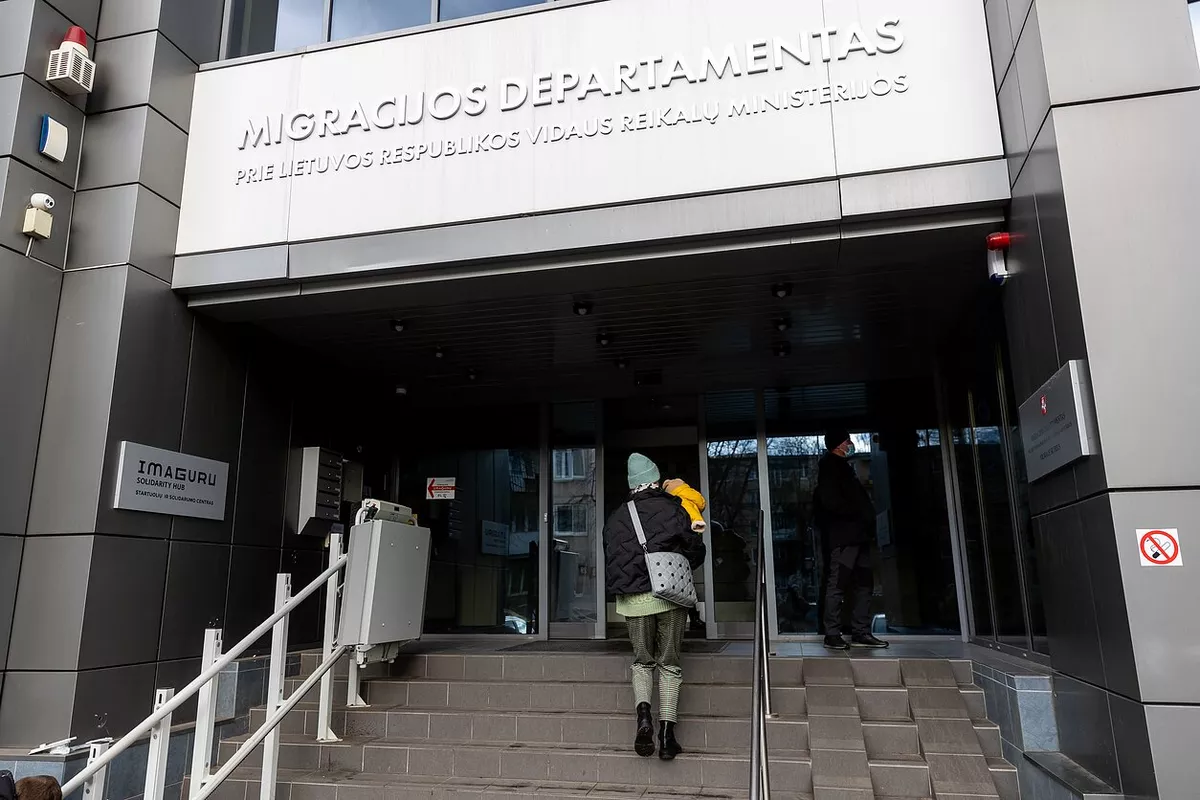
Ž. Gedvilas / BNS
Obtaining residence permits in Lithuania is expected to become more challenging for Tajik nationals, as the government moves to close its visa centre in Tajikistan, The Caspian Post informs via LRT.
Representatives of the Tajik community warn the move could increase irregular migration, worsen labour shortages.
Fastest-growing community
Migrant workers arriving in Lithuania from Central Asia now represent the fastest-growing community in the country. Nationals from Uzbekistan, Tajikistan, and Kyrgyzstan typically take up roles as lorry drivers, cooks and couriers.
However, authorities have raised concerns about some of these migrants. Tajik nationals, in particular, have been flagged by officials for occasionally breaching local laws, overstaying visas, or attempting to enter the country irregularly.
“If we look at illegal migration data, the proportion of Tajik citizens who fail to leave on time and need to be subject to return decisions is proportionally higher than, for example, among Uzbeks,” said Evelina Gudzinskaitė, Head of Lithuania’s Migration Department.
Under current rules, migrants must leave Lithuania if they lose their job. However, many choose to remain and continue working.
“Besides, there are other threats - since Tajikistan is a Muslim country, the risk of radicalisation is greater,” she said, adding “Tajiks periodically appear at the border and attempt to cross illegally into Lithuania or Latvia from Belarus, aiming to reach Western European countries.”
Proposal to close the external visa service centre
In 2023, around 1,400 Tajiks held residence permits in Lithuania. By June 1 this year, that number had soared to 6,500. The increase coincided with the opening of an external visa service centre in Tajikistan, where applicants could secure work and residence permits in Lithuania. The Migration Department has now recommended the centre be shut down - possibly by autumn.
“The Migration Department has proposed to the ministry that the external visa service centre currently operating in Tajikistan should be closed,” Gudzinskaitė told LRT.
Tajik community leaders warn the decision could backfire
“If this visa centre in Tajikistan is shut down, it will make it harder to get work permits in Lithuania. This will reduce the available workforce in the country. If the permit centre is closed, the number of migrants attempting to enter Lithuania illegally will increase. That’s because the legal route will be blocked. I believe irregular labour migration will rise. People will still try to reach Europe because the wages are better here,” said Chusravis Muhammadzoda, a representative of the Tajik community in Lithuania.
He added that Tajiks typically fill jobs where Lithuania faces a labour shortage.
“There’s already a shortage of workers, and it will only get worse. I’m talking about truck drivers, cooks - physical labour. Lithuanians are also going abroad to work,” he added.
President of the National Road Carriers Association “Linava”, Erlandas Mikėnas, agreed that the country is facing a severe shortage of drivers.
“There is a massive driver shortage - around 10,000 today. And ideally, we’d like to replace another 10,000 drivers from what are considered ‘unfriendly’ countries, likely the ones the Migration Department is referring to,” said Mikėnas.
Asked to clarify which countries are on that list, Mikėnas avoided naming specific nationalities.
“You know, I wouldn’t want to single out nationalities, but there are various cases. Across nearly 8,000 transport companies in Lithuania, there are a range of different situations. And, as I mentioned, state institutions here have also started distinguishing between ‘friendly’ and ‘unfriendly’ countries,” he said.
Small and medium-sized businesses might suffer
The Tajik community representative says it is unclear why his compatriots are being singled out.
“I don’t know why Tajiks are being treated differently from others who come here to work. It’s really unclear. Besides, no one wants to come here and work illegally. Because if you work illegally, it’s dangerous. You can be caught and deported. People working illegally have no health insurance and cannot earn a legal wage. And for illegal work, the pay is low and in cash. The wages are poor,” said Muhammadzoda.
According to Gudzinskaitė, risk assessments are based on data and the experience of other countries.
“We’re simply analysing information, including data from other countries, looking at trends. And in our case, there may be some warning signs. So of course, we try to act preemptively. And when we talk about radicalisation, we are largely talking about risks. But those risks are assessed and calculated, not plucked from the sky,” Gudzinskaitė said.
However, the Tajik community representative argues that their compatriots follow the law and are drawn to Lithuania by the protection of human rights.
“Human rights are protected here. That’s why people from Central Asia are coming. So, I repeat - the number of those trying to enter illegally will rise, and the number of legal workers will drop,” said a Tajik residing in Lithuania.
Mikėnas of “Linava” added that smaller firms will be hardest hit by new restrictions, as they struggle to attract drivers from more distant countries.
“Small and medium-sized firms are simply unable to recruit English-speaking drivers from far-off, exotic countries. So any closure or restriction making it harder for drivers to enter Lithuania is painful,” Mikėnas said.
Currently, nearly 208,000 third-country nationals hold residence permits in Lithuania.
Share on social media